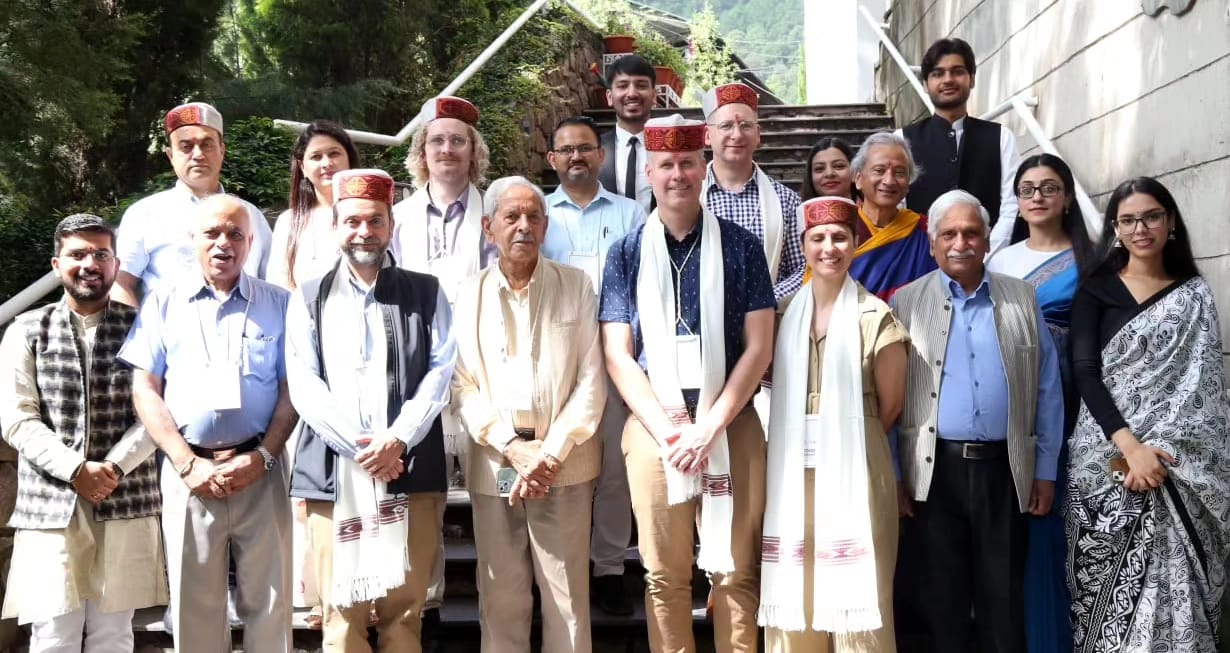
September 19
Shoolini University, in a groundbreaking partnership with the University of Melbourne (UoM), hosted an international academic workshop on September 19th. Held at the university’s APJ Hall, the event was aptly titled ‘Food for a Healthy Planet’ and addressed pressing issues related to sustainable agriculture. The workshop put a particular focus on innovative methods to improve food production while simultaneously reducing food wastage.
The day began with a welcome address by Shoolini University’s Vice Chancellor Prof Atul Khosla. In a rallying cry to the students and faculty present, Prof Khosla declared, “Let’s make a collective pledge to minimise food wastage on our campus. We aim to not just talk about sustainability, but also embrace it actively, positioning Shoolini as a role model in solving real-world sustainability issues.”
Building on this, Chancellor PK Khosla further drove home the institution’s commitment to sustainable practices. He stated, “We have a rich history, transitioning from a country grappling with food scarcity to one with a surplus. It’s imperative now to look at how we can smartly integrate technology like AI into our agricultural systems without disturbing the delicate balance of our ecosystems.”
Following the opening remarks, attendees got a chance to network and share their thoughts during a felicitation session and tea break at the Faculty Club. This set the stage for an afternoon filled with intellectual stimulation.
Commencing the series of presentations, Associate Professor Alex Johnson, Associate Dean (International) of the Faculty of Science at the University of Melbourne, gave an overview of his university’s academic programs and ongoing initiatives in India. He highlighted the educational offerings and collaborative projects that UoM has been leading to strengthen the scientific and research landscape in India.
Antanas Spokevicius, a Senior Lecturer in Forest Ecosystem Science, provided an in-depth discussion about the domestication of trees and the crucial role that biotechnology plays in creating renewable materials. The lecture emphasised the opportunities that biotechnological advancements provided in harnessing trees and their by-products for a more sustainable future.
Not to be outdone, Prof Alex Johnson returned to the podium to discuss a topic of immense social importance: the redesign of cereal grains to address the issue of ‘hidden hunger’. Johnson talked about the biofortification of food crops as a viable method to make cereals more nutrient-rich, thus combating deficiencies and promoting better health outcomes.
Prof Giovanni Turchini, Head of the School of Agriculture, Food, and Ecosystem Sciences, then took the stage to explore the origins and journey of health-promoting omega-3 fatty acids in our food systems. His talk focused on the significance of these fatty acids in human health and how tracing their path through the food chain could influence better dietary choices and overall well-being.
Adding another layer to the conversation, Surinder Singh Chauhan, a senior lecturer specialising in Livestock Genetics and Genomics, highlighted the vital role that sustainable practices play in farm animal production. Chauhan delved into how a balanced approach to livestock farming can help meet the increasing food demands while preserving environmental integrity for future generations.
Contributing from Shoolini University was Professor Dinesh, Head of the School of Bioengineering & Food Technology. His participation further enriched the discussions, ensuring that the perspectives presented were as diverse as they were enlightening.
The workshop was brought to a close with a formal vote of thanks presented by Rozy Dhanta, Deputy Director of International Affairs at Shoolini University. She expressed heartfelt gratitude to all the participants and attendees for their active engagement and contributions to the event’s success.
This workshop served as a platform for the exchange of ideas and collaborative research between the academic communities of Shoolini University and UoM. It set the tone for future collaborations for a more sustainable, food-secure world.
